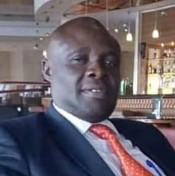in Offshore Facility Maintenance Projects
in the Oil and Gas Industry
FEATURED PAPER
By Chimezie Henry Achaka,
Benedict Amade, PhD,
Prof Kevin Aku Okorocha, PhD,
and
Prof Emmanuel Chinenye Ubani, PhD
Department of Project Management Technology
Federal University of Technology
Owerri, Nigeria
Abstract
Lean production can be used to overcome serious organisational performance issues in the oil and gas industry, affecting both production and service delivery. This study will look into the extent and understanding of lean concept adoption in offshore facility maintenance projects in Nigeria’s oil and gas industry. The study employed descriptive and survey research design methods of investigation, as well as a purposive and convenience sampling methodology, to pick a sample size from a population of 122 practitioners working in eleven (11) oil servicing enterprises in the Niger Delta region of South-South Nigeria. The data collection and survey instrument included a well-structured questionnaire, semi-structured/focused group discussions, personal observations, and site visits to gather information from respondents, oil and gas servicing firms, and projects. The collected data was displayed using frequency distribution in the form of tables and Cronbach’s Alpha test using IBM SPSS Statistics version 26.0. A survey of 113 respondents found that 34.51% are involved in major offshore facility maintenance projects, with the majority (24%) working on pipe and structural maintenance. The study also found that 19.48% of respondents were unaware of lean in offshore facility maintenance projects, with the remainder (45.82%, 18.58%) being slightly knowledgeable. The study also found that 22.12% of respondents were unaware of lean tools for waste reduction in offshore facility maintenance projects, while the remaining respondents (45.13%) were only marginally knowledgeable.
Keywords: Facility, Gas, Maintenance, Nigeria, Oil, Projects.
Introduction
Despite using planning and scheduling techniques, they do not meet the projected delivery time, resulting in higher costs and lower profit margins. This problem highlights the need for modern tools and superior management skills or philosophy to address the shortcomings associated with traditional project management planning and scheduling, as stated by Wenchi, Wang, Wang, and Chong (2015). The oil and gas industry has been focusing on the lean thinking philosophy to enhance the efficiency of the maintenance project process, starting from the planning stage.
According to Jongeling and Olofsson (2007), there is a lot of room to improve workflow, which is the movement of resources through different areas of a site. This is because current activity-based scheduling methods don’t support workflow planning well enough for practical and methodological reasons. According to field surveys and investigations, the OSC has problems with delivering oil and gas facility maintenance projects. These include problems with finished products, not having enough Just In Time (JIT) flow, having too many raw materials and consumables on hand—some of which go bad before they can be used—having too much work-in-progress (WIP), making too many finished products and keeping them on hand when they’re not needed, long lines at the fabrication section, and hard work processes. This leads to frequent machine breakdowns, high overhead costs and wage bills, low worker morale, and low productivity in the absence of income generation for sustenance, affecting the company’s ability to be sustainable, deliver projects, pay wages, and pay operating bills. Such a negative impact, combined with a prolonged period of inactivity when the firm is unable to obtain a contract, forces many OSC management to downsize and lay off employees in order to keep the company operating.
According to Tourki (2010), businesses are under pressure to cut costs, customer lead time, and cycle time while increasing efficiency and quality. The decline in oil and gas prices, combined with the worldwide crisis, presented additional problems and challenges for both OGPC and OSC. While the OGPC is reducing their business costs and developing various techniques to reduce project and operational costs, the OSC must innovate to stay in business, given the increased competition among OSCs. We need to address other tactics, rendering the direct cost-cutting technique obsolete. The need to establish modern ways for improving project delivery is critical to survival, whereas a strategy aimed at reducing project delivery time, increasing profitability, and reducing waste connected with project-relevant resources and procedures is appropriate. Duran et al. (2017) stated that the lean maintenance concept is one of numerous strategies utilised to increase maintenance efficiency.
Lean goes beyond project planning and focusses on the removal of waste, non-value-adding activities, and processes that consume resources and take up space in order to smooth out the flow and reallocate those resources acquired from waste elimination. Uzochukwu and Ossai (2016) assert that the Toyota Production System (TPS) primarily inspired the lean system, a management philosophy that emerged in the 1990s. The Toyota Production System (TPS) is widely recognized for its emphasis on minimizing the original Toyota seven wastes, namely transport, inventory, movement, waiting, overprocessing, overproduction, and defects. Womack and Jones (2003), as well as Womack, Jones, and Roos (1991), characterised Lean theory as a real-world method for removing waste at the lowest possible cost and highest value…
More…
To read entire paper, click here
How to cite this paper: Achaka, C. H., Amade, B., Okorochac, K. A., Ubani, E. C. (2024). An Evaluation of the Extent of Adoption of Lean in Offshore Facility Maintenance Projects in the Oil and Gas Industry; PM World Journal, Vol. XIII, Issue IX, September. Available online at https://pmworldlibrary.net/wp-content/uploads/2024/09/pmwj145-Sep2024-Achaka-et-al-Adoption-of-Lean-in-offshore-facility-pojects-in-oil-and-gas-industry.pdf
About the Authors

Chimezie Henry Achaka, MSc
Owerri, Nigeria
![]()
Engr. Chimezie Henry Achaka, M.Sc is a project management practitioner and practitioner with academic affiliations. He possesses an M.Sc. degree in Project Management Technology and a Registered Mechanical Engineer with over (18) years of work experience in the Oil & Gas Industry. He is an AMPP Senior Certified Coatings Inspector, an IRCA Certified Lead Auditor, and an AWS Certified Welding Inspector. He has worked on several International Oil companies’ projects; Onshore/Offshore facilities, Rigs/FPSO/Drill Ships at various Technical/Management capacities, providing startup construction & contracts management, maintenance, modification/facility upgrade services. His professional expertise includes; Projects/Contracts Management, Construction, QA/QC, QMS Auditing, NDT & Destructive Welding & Coatings Inspections, Supervision of Technicians on Fabrication & Protective Coatings, HSE Inspection of field operations, Pipeline reticulation project management. His mission is to add value to any organization by making a good impact and his ideology is to guarantee good performance on the job, with a vision to further develop competencies in his self and career through learning. He can be contacted at achakach@yahoo.com, henryachaka.20164997168@futo.edu.ng.

Benedict Amade, PhD
Federal University of Technology
Owerri, Nigeria
![]()
Benedict Amade is a Chartered Project Manager by Profession and a Probationer (Member) of Nigerian Institute of Quantity Surveyors (NIQS). He read and obtained a PhD (Doctor of Philosophy) Degree in Project Management Technology from the Federal University of Technology, Owerri, Nigeria. He is a member of the Project Management Institute (PMI) U.S.A. and presently a Senior Lecturer in the Department of Project Management Technology of the Federal University of Technology, Owerri, Nigeria where he has been lecturing for the past 15 years. His areas of research interest include construction project management, computer-based project management, construction supply chain management and information technology on construction projects. He has authored over 50 scientific publications in international refereed journals indexed in Scopus, Web of Science, Scimago etc. He has presented quality papers at international conferences both home and abroad. He is actively involved in other consultancy works. He can be reached at https://orcid.org/0000-0003-3368-5432; benedictamade@yahoo.com; benedictamade@futo.edu.ng; benedictamade2@gmail.com.

Kevin Aku Okorocha, PhD
Federal University of Technology
Owerri, Nigeria
![]()
Kevin Aku Okorocha is a Professor in the Department of Project Management Technology, Federal University of Technology, Owerri, Nigeria. He holds a B.Sc, Estate Management, M.Sc Project Management Technology, MBA in Banking and Finance, M.Sc Economics and Ph.D in Project Management Technology. His areas of research interest include; Project Financing and Investment, Industrial Economics. He is an Associate member of the Nigerian Institute of Estate Surveyors and Valuers, and a Fellow of the Chartered Institute of Project Managers of Nigeria. Professor Okorocha is currently the Dean of the School of Logistics and Innovation Technology, Federal University of Technology, Owerri, Nigeria. He can be reached at okorocha_kev@yahoo.com.

Emmanuel Chinenye Ubani, PhD
Federal University of Technology
Owerri, Nigeria
![]()
Emmanuel Chinenye Ubani is a Professor in the Department of Project Management Technology, Federal University of Technology, Owerri, Nigeria. He holds a B.Sc, M.Eng and Ph.D in Industrial Engineering and Project Management. His areas of research interest include; Engineering Project Management, and Materials Requirement Planning. He is member of the Nigerian Society of Engineers (NSE) and Fellow of the Institute of Industrial Administration. Professor Ubani can be reached at drecubani@yahoo.com.









